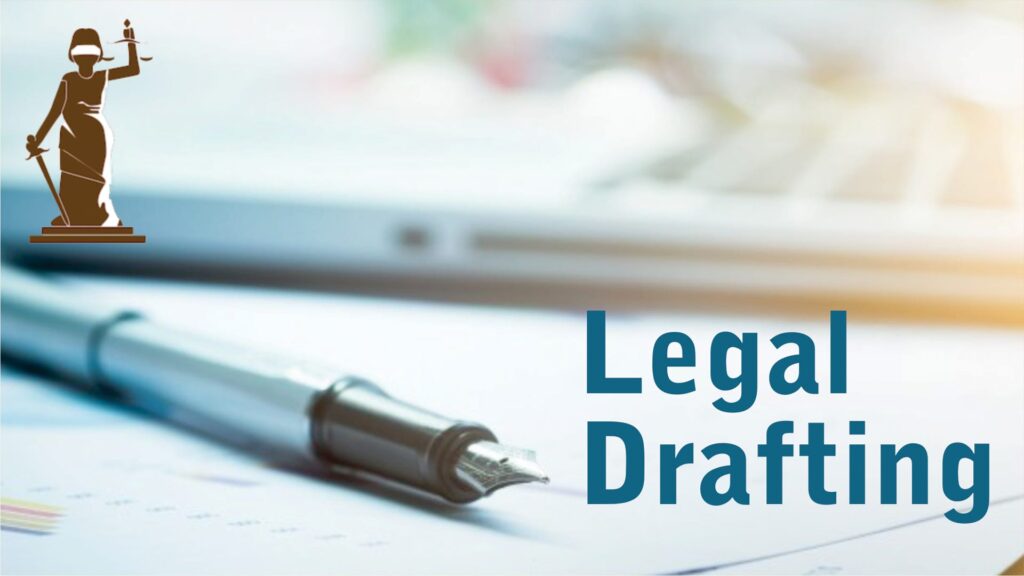Alt: Practical tips to improve drafting skills for legal professionals
Legal drafting is a fundamental skill for any aspiring lawyer. As a BA LLB student, we advise you to learn how to craft clear, concise, and persuasive legal documents that can communicate your arguments effectively and help you achieve the desired outcome.
What is Legal Drafting?

Drafting skills as a lawyer are important because as legal professionals, you will often have to draw contracts, wills, notices, and other documents with legal consequences. Understandably, legal documents have to be clear and precise to make sure all parties understand their rights and obligations and misunderstandings can be avoided.
Knowing legal drafting can determine your success as a BA LLB student and a lawyer later. If you can effectively communicate complex legal concepts and arguments, you can easily find a job at any law firm or work independently.
Practical Tips to Improve Drafting Skills for Legal Professionals
1. Write, Write, Write!
Alt: Hone your drafting skills as a lawyer
This may seem obvious, but consistent practice is key to developing strong drafting skills as a lawyer. A BA LLB student is advised not to wait for assignments or internships to start honing his or her craft. Here are a few ways to get started:
- Write short legal articles: Choose topics related to your coursework and research legal principles. This will help you solidify your legal knowledge while improving your writing skills.
- Draft legal scenarios: Imagine yourself as a lawyer and draft legal documents based on hypothetical situations. This could involve applications, petitions, or briefs.
- Volunteer at a legal aid clinic: Many legal aid clinics offer opportunities for law students to assist with drafting basic legal documents under the supervision of experienced lawyers. There’s one at SMS Law College too.
2. Plan, Draft, Edit, Repeat
One of the most neglected tips to improve drafting skills for legal professionals is not to jump straight into writing. Take a moment to plan your draft. Here’s a simple approach:
- Identify the purpose and audience: Clearly understand the document’s objective and who will be reading it.
- Organize your thoughts: Make a bulleted list of key points you want to include.
- Draft and revise: Write your draft, focusing on clarity, conciseness, and legal accuracy. Then, revise and edit ruthlessly. Eliminate unnecessary jargon and ensure your language is clear and easy to understand.
3. Seek Feedback and Learn from Mistakes
One big advantage you have as a BA LLB student is that you always have professors to guide you. Don’t be afraid to seek feedback on your drafts. Share them with professors, teaching assistants, or experienced lawyers you know. Pay close attention to their critiques and use them as learning opportunities.
4. Embrace Continuous Learning
Legal drafting is an ever-evolving skill. Stay updated on legal developments and best practices. Consider attending workshops or seminars on legal drafting to broaden your knowledge and refine your skills.
Some additional resources that can help you improve your legal drafting skills include:
- SMS Law College legal writing courses: From time to time, we offer legal writing courses specifically designed to teach BA LLB students the fundamentals of legal drafting. Enrol in them and take full advantage while you still have time.
- Online legal drafting courses: Several online platforms also offer legal drafting courses tailored for BA LLB students.
- Legal drafting manuals and textbooks: Invest in a good legal drafting manual or textbook to learn the essential elements of different legal documents.
By following these tips and consistently practising, you’ll be well on your way to becoming a confident and skilled legal drafter. Remember, strong drafting skills are a valuable asset for any BA LLB student and will give you a significant edge in the competitive legal job market.
How to Write a Good Legal Draft?

Before you begin legal drafting, follow these steps:
- Identify keywords and legal issues to research for the specific document you’re drafting (e.g., non-compete clauses).
- Explore relevant statutes, cases, and jurisdictional variations to understand legal enforceability.
- Discuss the document’s purpose, potential limitations, and how courts might interpret key clauses.
Once you are done, craft clear, concise, and legally sound language that protects your client’s interests. BA LLB students are advised to use pre-existing forms as a reference after making their first drafts instead of using them as a starting point.
When you are working on your drafting skills as a lawyer, make sure:
- Every clause should be carefully drafted to address the specific situation. Don’t rely on generic language.
- Write for your audience. Use clear language, structure the document logically, and prioritize user-friendliness.
- Strive for simplicity and accuracy. Eliminate unnecessary words, legal jargon, and redundant phrases.
- Maintain consistent use of terms and definitions throughout the document.
- Adapt your drafts to specific client needs, case circumstances, and legal updates.
- Meticulously review your drafts for errors, omissions, and inconsistencies.
- Be prepared to address challenges like translating complex legal concepts into plain language, ensuring accuracy (e.g., misplaced punctuation), and meeting deadlines.
Some other tips to improve drafting skills for legal professionals are:
- Deepen your understanding and strengthen your writing by researching relevant topics, legal terminology, and court proceedings.
- Analyse legal documents like court rulings, statutes, and motions to understand how professionals present complex legal issues.
- Organize your thoughts and ensure a logical flow of ideas by creating a well-structured outline.
- Avoid convoluted language, jargon, and unnecessary repetitions.
- Strike a balance between professionalism and engaging language, using legal terminology judiciously.
- Enhance credibility by citing relevant sources using a recognised style guide. In India, one has to follow the ‘Standard Indian Legal Citation’ manual.
- Use active voice for a more dynamic and impactful writing style.
As a BA LLB student, focus on honing your legal drafting skills through consistent practice, seeking feedback, and utilising available resources. Mastering clear, concise, and persuasive legal writing will give you a significant edge in the job market.




